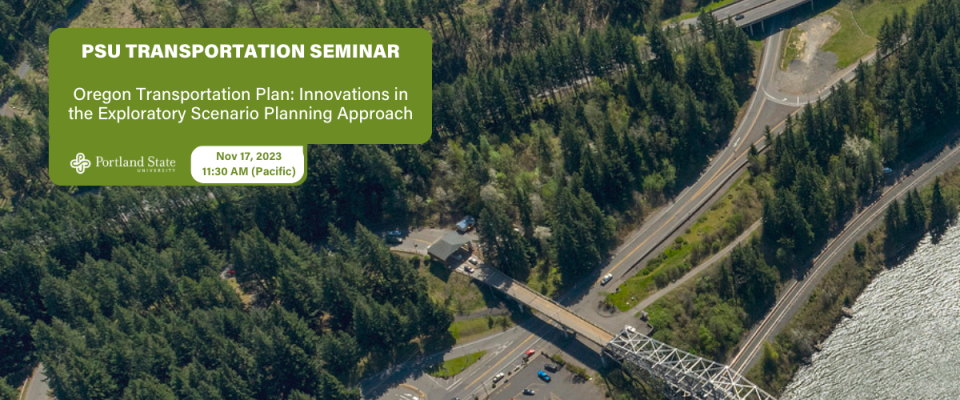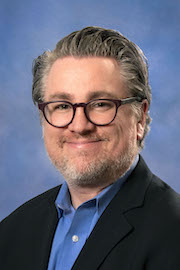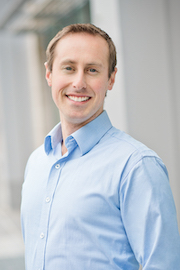
Transportation Seminars at Portland State University have been a tradition since 2000. Formerly known as the Friday Transportation Seminar series, we've opened up PSU Transportation Seminars to other days of the week to better accommodate attendance. You can always watch online via Zoom.
PRESENTATION ARCHIVE
THE TOPIC
This seminar reviews the recently-adopted Oregon Transportation Plan and the process and innovations that underpinned the analysis to identify a preferred set of investments and actions to support the vision and goals of the plan. The plan used innovative methods for communicating how investment strategies may affect regions or example households across the state. Funding is a key influence on how the plan by identifying the affects of inadequate funding and identifying how investment priorities change if funding increases. The Statewide VisionEval strategic travel model was used to conduct an exploratory scenario planning process that informed the relationships between funding, investments, preservation & adaptation, and travel behaviors. The seminar explores the OTP and the respective roles that planning, analysis, and modeling had in the process.
KEY LEARNING OUTCOMES
- Update on strategic modeling tools and methods available to planners and practitioners
- How Strategic Planning Models inform the development of policies, strategies, and actions in long-range plans
- How new tools and methods are available to conduct efficiently and effectively create output-driven plans
Gaining insight on the interplay of quantitative, technical analysis with qualitatively-driven public outreach in the long-range planning process
SPEAKER
Adam Argo, Principal Planner, Oregon Department of Transportation
Adam Argo, AICP is a Principal Planner in the Oregon Department of Transportation (ODOT) Transportation Planning Unit. He leads the development, refinement, and implementation of statewide multi-modal transportation plans, policies, and strategies. Adam acted as agency project manager for ODOT’s recently-completed update to the Oregon Transportation Plan. He has 25 years of transportation and land use planning experience in both the public and private sectors, is a certified planner through the American Planning Association, and holds a B.A. in Political Science and Master’s in Urban Planning, both from the University of Kansas.
Jonathan Slason, Director, RSG
Jonathan Slason, PE is a Director in RSG’s Planning Applications Practice. He has provided professional engineering and planning consulting services to public and private clients for over fifteen years. He has worked both nationally and internationally on land use policy and planning, design projects, and more recently long range planning, emphasizing climate and equity goals. He leads RSG's strategic modeling practice with a focus on exploratory scenario planning and currently is assisting FHWA and others to enhance the strategic modeling VisionEval platform.
PROFESSIONAL DEVELOPMENT
This 60-minute seminar is eligible for 1 hour of professional development credit for AICP (see our provider summary). We can provide an electronic attendance certificate for other types of certification maintenance.
Photo courtesy of Oregon DOT
Portland State University's Transportation Research and Education Center (TREC) is home to the U.S. DOT funded National Institute for Transportation and Communities (NITC), the Initiative for Bicycle and Pedestrian Innovation (IBPI), PORTAL, BikePed Portal and other transportation grants and programs. We produce impactful research and tools for transportation decision makers, expand the diversity and capacity of the workforce, and engage students and professionals through education and participation in research.


